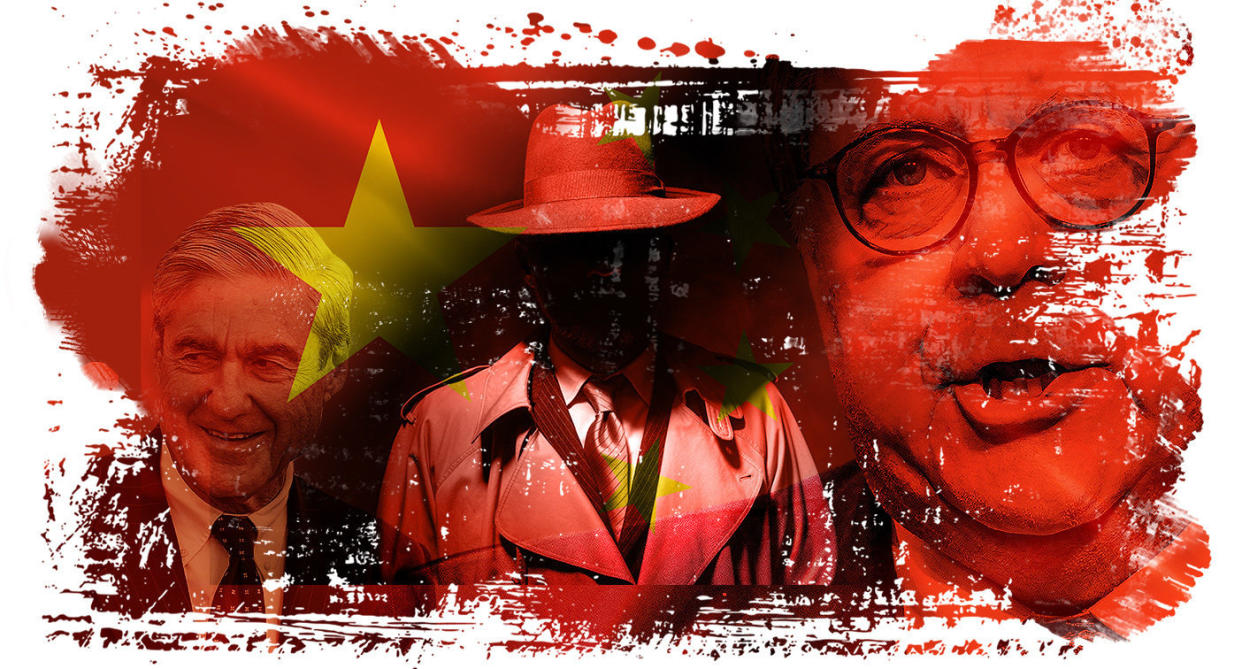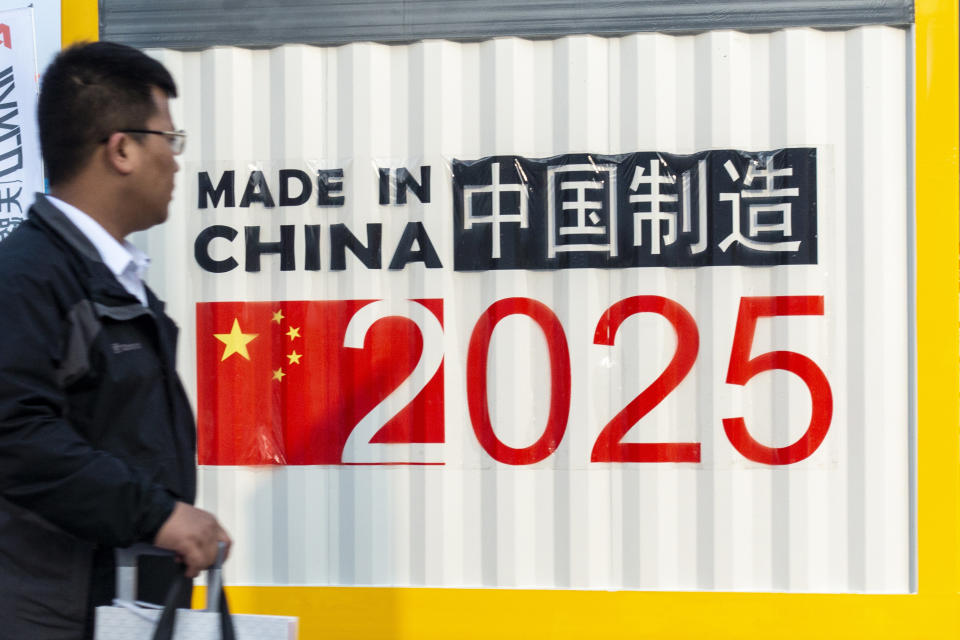At meeting of top spies, the focus is on China, not Mueller

SEA ISLAND, Ga. — On Sunday evening, as Washington eagerly awaited Attorney General William Barr’s summary of one of the most hotly debated counterintelligence and criminal investigations in recent years, some of the country’s top current and former intelligence officials gathered at a golf resort off the coast of Georgia to discuss the next major threat. But it wasn’t Russia they were most worried about.
“I think it’s all China, all the time,” said retired Gen. David Petraeus, former CIA director and commander of U.S. and NATO forces in Afghanistan on Tuesday morning.
On the subject of Robert Mueller’s investigation into Russian interference in the 2016 presidential election, he demurred, telling the audience that intelligence community “leaders are not necessarily helped if I’m making critical assertions” on “some issues” as it could cause the White House to “question [their] loyalty.”
Petraeus’s aversion to talk about the Russia investigation was echoed on the sidelines of the event. While election security and protecting the 2020 presidential election were also major themes, special counsel Robert Mueller’s name barely surfaced — a welcome relief to several top national security officials who spoke with Yahoo News.
For many, the day-to-day realities of fighting off nation-state spies from the ballot boxes and social media platforms is separate from ongoing questions about the Trump White House and its officials’ behavior while campaigning in 2016.
There was also a sense among the attendees that the initial revelations were unsurprising, and that the machinery of the intelligence community, whose officers may serve several presidents over many years, had pivoted towards other subjects.
“Most people here are career officials,” said one national security official, who asked not to be named because they weren’t authorized to speak to the press. “They’re not going to talk about that.”
Meanwhile, nearly every session at the conference — hosted by the Cipher Brief, a national security-focused website — included discussions and sometimes contentious debates on China and its global espionage, as well as how to respond to those concerns.

John Demers, assistant attorney general for the national security division of the Department of Justice, and Bill Evanina, director of the National Counterintelligence and Security Center, teamed up to discuss the government’s understanding of the threat China poses, and what different parts of government are doing to counter it.
According to Demers, China’s public “Made in China 2025” plan is an exact roadmap for Beijing’s spies on issues ranging from space to agriculture. The Ministry of State Security, China’s civilian intelligence agency, targets key officials across industry for both economic information as well as more traditional espionage, Demers explained. While the DOJ has multiple spying cases involving former U.S. intelligence officers who gave information to China, the theft of economic data has increased as well, he said.
Evanina, who tours the country discussing these issues with a range of companies he knows will be targeted (or already have been ) by China, says some firms have a fundamental misunderstanding of the threat. For example, he said, he encountered a group of business executives who two weeks prior to his briefing on China and economic espionage had all traveled to Beijing carrying their personal phones and laptops without taking any security precautions.
In another anecdote, he mentioned two young entrepreneurs on the West Coast who had pioneered advanced new technology with commercial and military applications — only to be told by the U.S. government they shouldn’t let a certain European company purchase the product for millions of dollars because it was actually a cut-out for China.
“I believe economic security is national security,” he said. “If we don’t fix this, the existential threat is only from China.”
Intelligence officials also expressed concerns about China’s work on 5G — the next generation of mobile networks that will allow for incredibly quick downloads of data — that have raised intense debate over security among the United States and its closest allies. China’s top telecommunication company, Huawei, is on pace to dominate the race to 5G, and U.S. intelligence officials are worried China could have unprecedented access to global networks that could be used for espionage or disruptive digital attacks.

President Trump and experts at the National Security Council have in recent months pushed allies not to work with Huawei on 5G, and have debated issuing a ban on Chinese 5G technology in the United States. However, in recent weeks, senior administration officials told reporters that 5G strategy is “country agnostic and company agnostic,” backing away from the previously more direct appeals.
Conrad Prince, the former deputy director of GCHQ, Britain’s signals intelligence agency, said that the U.K. “hasn’t come to a conclusion yet on Huawei” but generally feels it is “a risk-management issue” that is too complex to solve with a unilateral ban on Chinese technology.
Sue Gordon, principal deputy director of national intelligence, conceded that 5G technology is a difficult problem to solve. China can take advantage of its authoritarian system to force national attention and compliance on a single issue, something U.S. officials can’t do, she argued.
“How in the world did we get into the place where we have no one to compete with Huawei?” she asked, putting the onus back on the private-sector participants.
“Can we develop a new model of American advantage?” she asked.
Meanwhile, an issue that U.S. officials now appeared confident about is election security. That attitude was in stark contrast to the period immediately after the 2016 presidential election, when U.S. intelligence agencies concluded that Russia had interfered in an attempt to sway the vote in favor of Trump.
“What we’re able to do [during the 2018 midterm elections] did not exist before,” said Chris Krebs, director of the new Cybersecurity and Infrastructure Security Agency (CISA) at the Department of Homeland Security. Officials from across the intelligence, law enforcement and national security community worked to figure out what was happening and how to address it, he explained.
The message from Cabinet officials then, said Krebs, was to “get the damn job done,” and “it’s the same for 2020.”
_____
Read more from Yahoo News:

